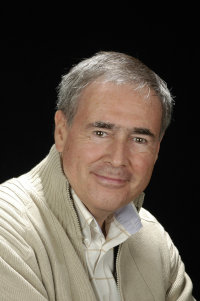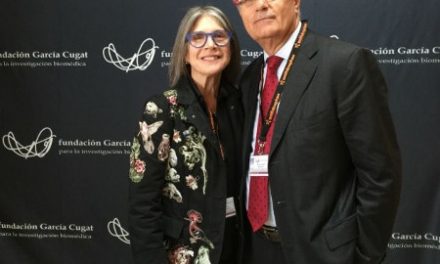Albert Bosch presides the National Congress of Virology held in Barcelona
Albert Bosch, professor at the Faculty of Biology of the University of Barcelona, president of the Spanish Society of Virology and full academician of the Royal European Academy of Doctors-Barcelona 1914 (RAED), led the past 9 and 12 June 15th National Congress of Virology, which was held at the Axa Auditorium in Barcelona. The event included the 11th International Meeting of the Global Virus Network, a reference working group that brings together the most prestigious virologists worldwide and is chaired by Christian Bréchot, from the University of South Florida. The inaugural conference of the congress was given by Robert C. Gallo, of the Institute of Human Virology of the University of Maryland, one of the leading experts in the field of human retroviruses.

Dr Albert Bosch
The sessions focused on the risks they pose to the spread of vectors that transmit infectious diseases, mainly insects, population growth, urbanization, the globalization of travel, trade and climate change. Participants agreed that the risk of epidemic outbreaks is higher than ever. “Now, more than ever, we must be reactive to provide rapid responses to epidemic outbreaks, and we aim to be better prepared to detect emerging infectious diseases as soon as possible and stop their impact,” said Marion Koopmans, head of the Department of Human Sciences of the Erasmus Medical Center in Rotterdam (The Netherlands) and a world leader in research on zoonotic viral diseases and emerging viruses.
“We need more dialogue and also share epidemiological information among medical professionals, veterinarians, virologists and biologists to detect and prevent zoonotic outbreaks and food safety problems”, added Albert Bosch, for whom all health professionals must now join forces to enhance the concept known as a single health, which encompasses human, animal and plant health on a planetary scale.
“In this context, the Spanish Society of Virology aims to work to promote research in virology, establish contacts in the international arena and offer advice when an episode arises caused by viruses, and implement strategies of surveillance or control, as when it occurred the crisis caused by the cases of Ebola in Spain in 2014”, continued the president of this entity and academician of the RAED.
For his part, Christian Bréchot said that “teamwork is essential to be prepared and offer responses to emerging viruses and other unidentified that can threaten public health. Therefore, we seek solutions to the problems caused by the viruses in coordination with national and international institutions. In the framework of this congress, special emphasis has been placed on the eradication and control of emerging and reemerging viruses in a context of climate change”.





